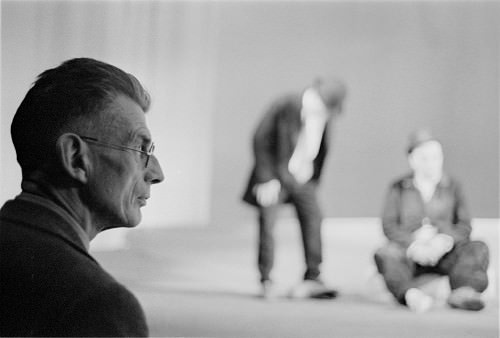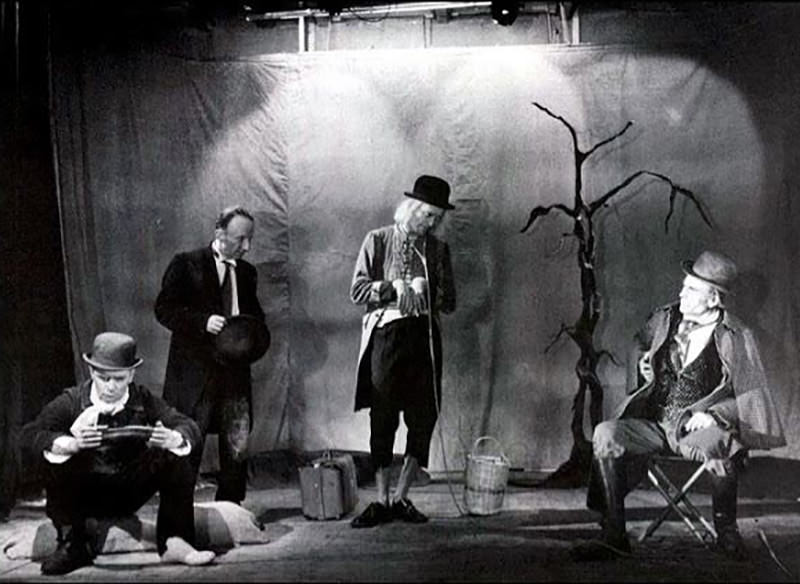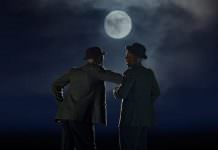Ever tried. Ever failed.
No matter. Try Again.
Fail again. Fail better.
The genius whose work extended beyond the measurements of borders in drama, fiction, and philosophy in so many ways, the man who so stubbornly insisted on digging trough the human mind, forever displaying the futile search for meaning in life, in one’s isolation, and the ongoing struggle between our desires and our language…Samuel Beckett.
It’s not wrong to say that his philosophical and theatrical signature has shocked the world from the very beginning.
The man without compromise, art-wise, the winner of the Nobel Prize for Literature 1969, Beckett, was born in Dublin in 1906 in a Protestant family, where he later studied French and Italian at Trinity College.

Throughout the years he had various “periods”, the Paris period, the London period, the period when he roamed trough Germany, pre and after the Second World War, before and after “Waiting for Godot”. Biographers have made chapters of his life, but the essence of Becket’s unspoken words, of his stage silence, speak of something other than repeated theatrical clichés. He created his book of revelation to the world of the theatre and art.
But surely we must mention Becket’s works through time that have shaped his career and the world of theatre as we know it.
On the 5th of January 1953, the play ”En Attendant Godot” premiered in Babilon in Paris, and had an unexpected but overwhelming success. The play was passionately accepted by the audience and bitterly by the critics, Beckett was recognized worldwide as a master in theatre. There are various interpretations of this masterpiece, based on Beckett’s philosophy and views. This multilayered play in a very plain way describes human nature in the search and fight in the absurd constellation of desire, needs, actions and time in which people are trapped.

This immense drama is an endless inspiration for actors, directors, and stage writers to this day.
Other works that had shaped the world of theatre, or the world of the absurd, are, “Murphy” 1938, “Molloy” 1951, “Malone dies” 1951, “The unnamable” 1953, “Watt” 1953, “Endgame” 1957, “Krapp’s Last Tape” 1958, “How it is” 1961, etc.
He wrote lyrics and novels in groundbreaking new forms. He tried every time to oppose the mainstream “positivistic” or “realistic” way of writing breaking the usual time, space, narrative and character rules.
He worked following his philosophical standings until his death, just before the Christmas of 1989.













